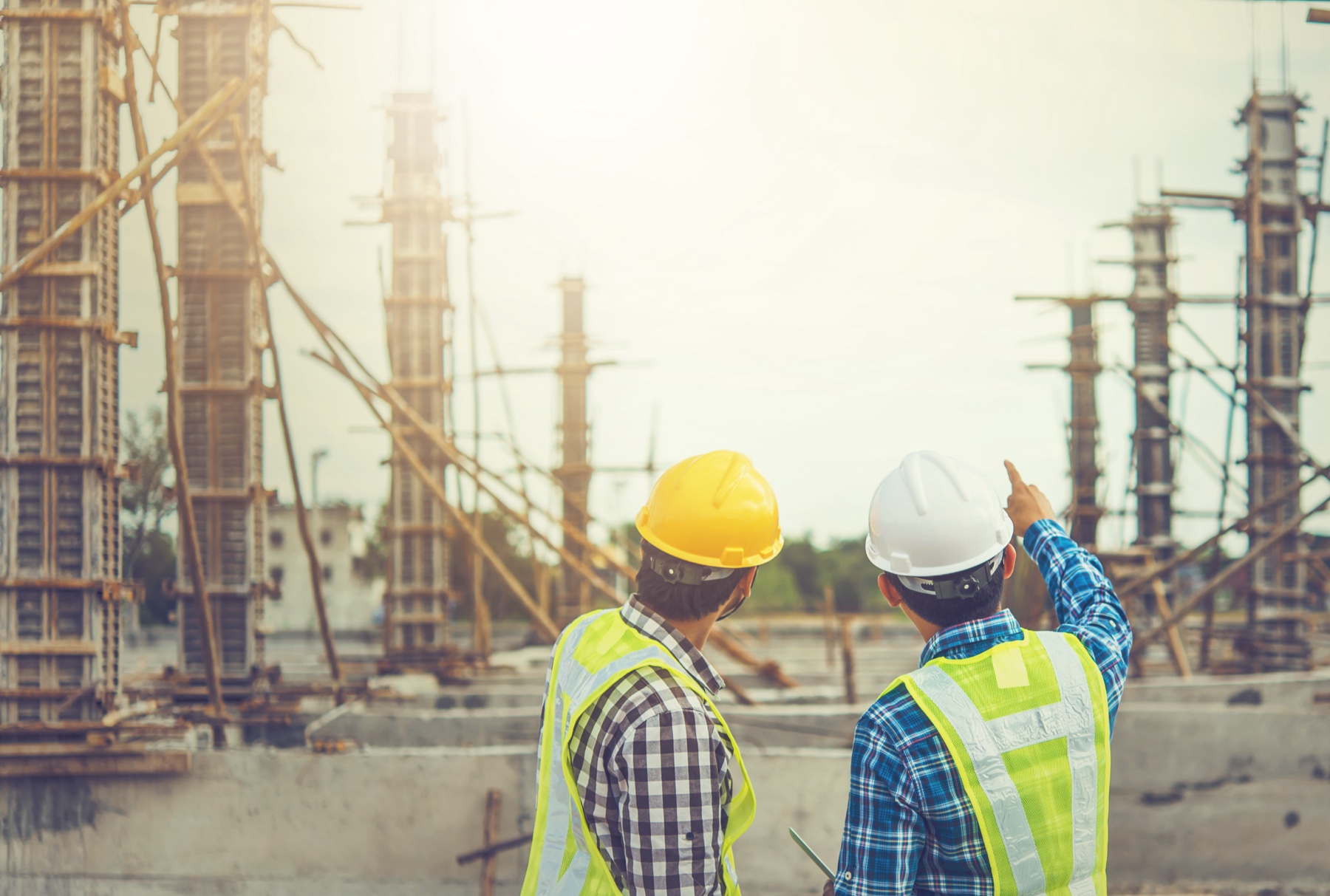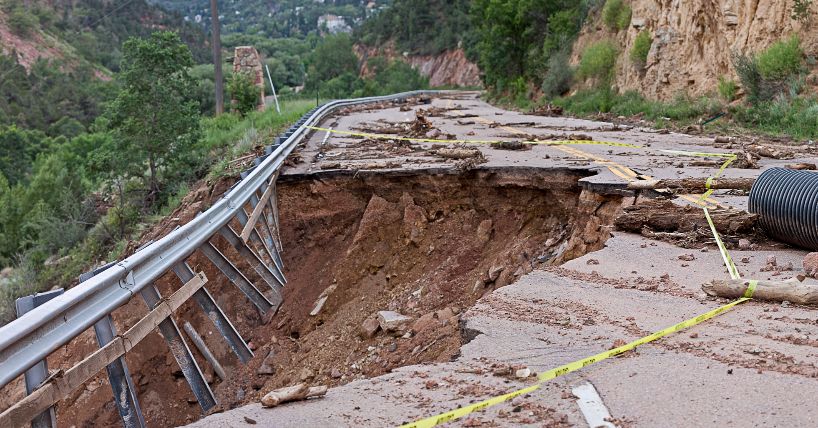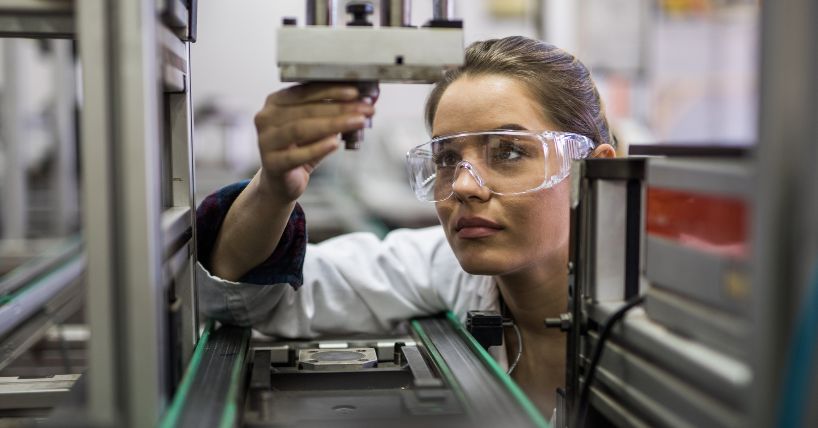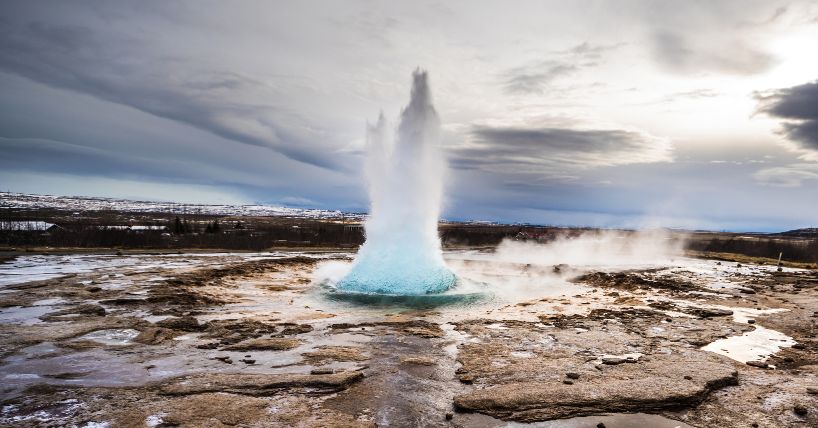Research Group: Geotechnical and Structural Engineering
Developing sustainable and resilient urban environments.
We provide cutting-edge sustainable solutions to today’s geotechnical and structural engineering problems. We develop innovative ways to mitigate the risk of natural hazards for communities across the world.
The GEST (Geotechnical and Structural Engineering) Group is at the core of the Civil Engineering discipline. We deal with the fundamental concepts of material behaviour, construction, and design technology.
Our research reflects these core aspects. It also links with the theme of sustainability in construction and climate change effects in civil engineering.
We are founding members of UKCRIC. In the North-East, we host:
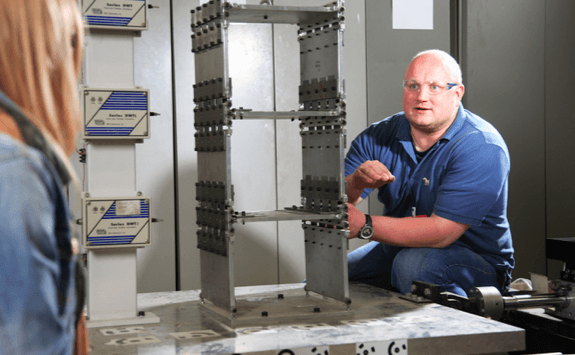
Our research involves areas such as:
- Geo-energy
- We are looking at the development of geothermal systems to decarbonise heating and cooling. Our research includes ground source heat exchange in green infrastructure.
- Digital manufacturing and construction
- We are contributing to the Digital Manufacturing Hub. This Hub is a part of the Stephenson project.
- Catastrophe modelling of infrastructure networks
- We work in large-scale infrastructure monitoring and modelling. We undertake urban observation and rehabilitation of existing infrastructure.
- Material modelling
- We carry out multi-scale (molecular vs continuum) multi-physics multi-phase material modelling.
Research themes
We have categorised our ground-breaking research into four interrelated themes.
Each research theme includes projects based on our capabilities in:
- advanced numerical simulation
- material characterisation
- multi-scale testing
Our projects often cut across themes and research capabilities. We are proficient in each of these themes. Our emerging specialism is the synergic effect of our expertise. We find solutions to problems through high-quality input and output at all levels. Our projects often bring together leading researchers from around the world.
We have a long-term involvement in field investigations and industrial engineering projects.
Leading the way in advanced modelling, simulation and data analysis
We have an international reputation in modelling and simulation. We have built our reputation over the past several decades.
We have considerable expertise in computational mechanics and geotechnics. Our skills lie across a wide range of topics. We work in both application and analysis of problems, and in the development of numerical methods and constitutive models.
Our computerised modelling projects mainly cover the following topics:
- multi-phase flow and coupled multi-field analysis
- multi-scale geotechnical modelling
- structural textiles and polymeric composites
- structural optimisation and reliability
- seismic engineering and extreme loadings
- network vulnerability and lifelines
Our communication approaches and technologies allow non-specialists to engage with our research. The tools and frameworks we use help stakeholders and policymakers make better decisions.
Structures
We work in the field of plate, shell and membrane structures. Our work involves analysis and optimisation. We place special emphasis on high levels of material and geometric non-linearity. We also specialise in the development of stochastic frameworks.
This work has strong links to the development of testing technologies, and informs the numerical modelling of structural textiles and polymeric composites.
Earthquake Engineering
Our research on earthquake engineering concentrates on seismic structural analysis and soil dynamics. We use field observations of extreme events to investigate fundamental reassessments of current practice and structural performance design qualification.
Multi-phase flow
We investigate problems in multi-phase flow and coupled multi-field analysis. We have expertise in modelling problems concerned with partially saturated soils. We study the effects of climate change on slope stability.
We also undertake coupled hygro-thermal-mechanical modelling of concrete exposed to elevated temperatures. We look at nuclear applications and the effects of fire. Directly allied with this is our work on constitutive model development.
Impact
We provide effective solutions to societal challenges.
Our group works in partnership with:
- governments and industry
- the creative and cultural sector
- community groups
We identify current and future challenges faced by society. We provide innovative ideas and solutions that will make a difference.
Advising Parliament: Does the UK need EU funding to remain a world-leader in scientific research and innovation?
Professor Stefano Utili has been seconded at the House of Commons Science and Technology Committee as an Academic Fellow. He advises on the impact of EU and UK national research funds on the UK research and development ecosystem.
- Read more about GEST group researcher working with Parliament
Towards geohazards resilient infrastructure under changing climates
Our research in geohazards is fundamental and interdisciplinary. We are developing a step change in our current understanding. We are investigating monitoring capabilities. In turn, this will boost the resilience of current infrastructure under changing climates.
- Read more about geohazards resilient infrastructure under changing climates
Exploiting ten years of archival water quality data from one hundred locations
We predicted the faecal coliform concentrations for all major rivers in the Ganga (Ganges) catchment. Considering human and non-human sources, we found that:
- urban populations contribute around 100 times more microbial pollution per head to the river than their rural counterparts
- untreated sewage discharged from a sewer is worse for river water quality than having no sewers
- for 79% of the population of the Ganges catchment, their nearest river fails faecal coliform standards for safe bathing and irrigation
Our findings will be included as a case study in an upcoming WHO policy briefing document.
- Read more about exploiting ten years of archival water quality data
Natural flood management solutions to protect communities across the UK from flooding
We proposed an improved gully block design that could provide a much larger flood peak reduction than existing designs. Moors for the Future Partnership have installed thousands of gully blocks. They have also revegetated hundreds of acres of degraded peat across the South Pennines.
Creating adaptive solutions to ensure resilient infrastructure
We are working with the National Grid. Together, we are developing a new methodology to determine the most suitable location to site demountable flood defences. This means that they can be easily deployed to defend critical substation assets in the event of a flood.
- Read more about creating adaptive solutions to ensure resilient infrastructure
Developing Engineered Living Materials for construction
We work with architects, synthetic biologists and microbiologists. Together, we are developing biological materials which respond to their environment. This work could result in new ways of designing and constructing which are more efficient and sustainable. The work forms part of the UKRI-funded Hub for Biotechnology in the Built Environment.
- Read more about developing Engineered Living Materials for construction
Join us
PhD Opportunities
We actively seek and recruit high quality research students. Several funded PhD studentships are available for Home and EU prospective students. The University also offers scholarships for the very best international students.
Take a look at our current PhD candidates and our staff research interests to see the opportunities available.
There are also scholarships funded by Centres for Doctoral Training and Doctoral Training Partnerships:
Collaborations
We work with a range of partners in Newcastle, the UK, and internationally, including:
- multi-national corporations and SMEs
- the public sector
- civil society
- professional institutions
- voluntary organisations
- schools and colleges
- policymakers
This ensures our students are ready to work in the civil engineering sector, and to maximise the impact of our research.
Teaching
Taught Programmes
From day one, our Civil Engineering Undergraduate Programmes give students a path to become a professional engineer addressing major global challenges.
Our Civil Engineering Postgraduate Taught (MSc) Programmes equip students with the advanced skills and expertise to help shape the world.
Facilities
130kN Bi-axial tension/shear rig - an in-house custom-built rig specifically designed for the testing of composite materials and particularly bi-axial loading of woven and non-woven structural fabrics.
Dynamic Triaxial Testing - this apparatus can apply monotonic or cyclic loading to simulate earthquake and other cyclic/dynamic loading of soils.
Partially Saturated Triaxial Testing - an extension of traditional triaxial testing. Can be used to obtain the stress dependent soil water characteristic curve and test partially saturated samples.
Digital Image Correlation - measures shape, displacement and strain in either two or three dimensions. Can analyse specimens ranging from <1mm to >10m, maintaining high levels of accuracy whilst displaying the real-time analysis results. Primarily used to determine the strain characteristics of metal, soil, fabric and composite samples.
Climate chamber – controls temperature (range: 5-70°C) and relative humidity (range: 5-80% at 40°C) for a volume of ~0.5 cubic metre. Used to condition samples or run tests of water vapour sorption, e.g. to observe shrinkage/swelling and cracking or to construct BET plots of surface area.
Dynamic Vapor Sorption (DVS) - similar to the climate chamber, but used on very small samples (e.g. 50 micrograms).
- controls temperature (range: 5-40°C) and relative humidity (range: 0-98%)
- has a 7 decimal places microbalance to measure weight changes upon changes of RH or T
- can be used to draw sorption isotherms and compute mesopore size distributions (1-50 nm pore diameters)
- can measure specific surface area via the BET method.
Local Strain Measurement - Used to measure small strain behaviour in soils and to determine their initial stiffness properties.
Thermal and Hydraulic Conductivity Testing Equipment - used to determine thermal and hydraulic characteristics of soils and rocks, this apparatus has applications associated with energy piles, buried pipelines, and geothermal energy.
Electro-Kinetic-Geosynthetics (EKG) - has applications in:
- material dewatering (including sewage and other wastes)
- ground consolidation
- sports turf
- composting
Specialist cells developed in the laboratory can be used for determination of electro-osmotic permeability, flow rate and gas evolution.
Dynamic Activator – can apply dynamic load for structural testing for example to simulate earthquakes or wind loading.
Large Testing Frames - Avery-Denison 250kN, 1000kN and 5000kN tension/compression loading machines.
Full-scale Embankment Facility - The GEST group operates a fully instrumented, climate controlled 90m long embankment for slope stability and biological research.
High Angle Flume - 4 x 0.3 x 0.3 m glass sided flume with recirculating flow can be tilted up to 45 degrees - used for granular stability and flow experiments.
High Speed Cameras - 3 x Point Grey Grasshopper USB cameras each capture 3.2 megapixels at 120 FPS - used for particle image velocimetry.
